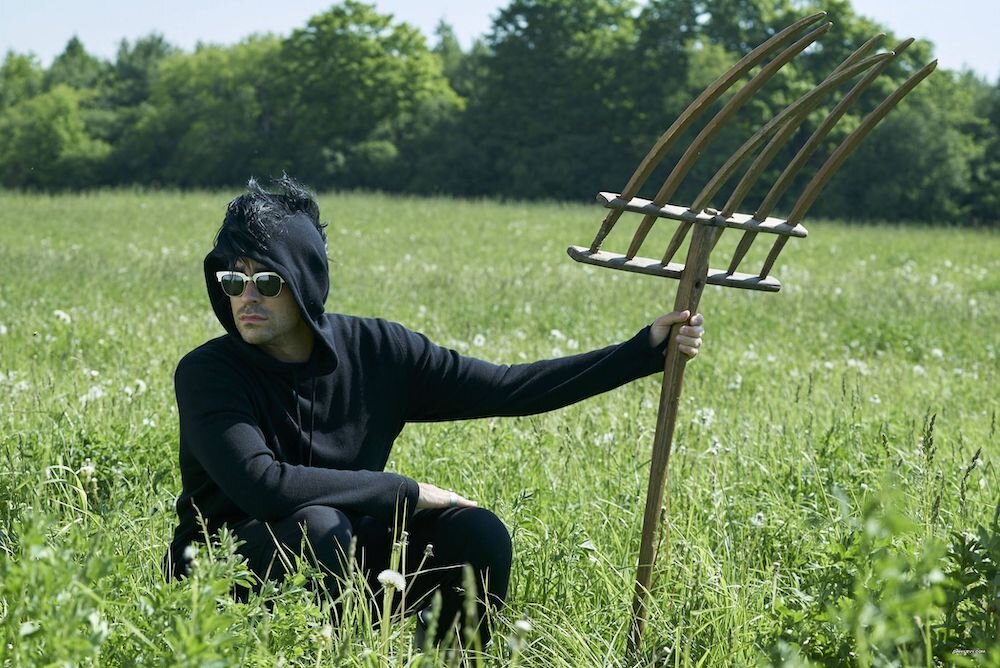5 Screenwriting Tips from Dan Levy
Originally published on ScreenCraft.org in March 2021
If there’s anyone in Hollywood who can claim all of the hyphens, it’s Dan Levy.
The creator, showrunner, writer, producer, director, and star has learned a thing or two about television in making six seasons of the Emmy Award record smashing Schitt’s Creek, and, in turn, we can all learn something from him.
———
WRITE THE DAMN THING
“If you don’t follow through, you will physically have nothing. If you don’t follow through with the script idea that you have, even if you hate what you’ve written, at least at the end of it you have a script. So many people don’t have follow-through. If you could get something done, if you could write something or continue to audition and never give up, it’s the follow-through that will ultimately put you ahead. It will put you out in front. To be able to have something, whether it’s audition experience, or a pilot, a movie script — to be able to have something is invaluable.” (Backstage interview)
It sounds so frustratingly simple — write the script. But it’s almost revolutionary in its simplicity. What Levy points out is true. Even if you complete a script and hate what you’ve written, at least you’ve written it. Crappy words on the page can always be edited and revised, ultimately shaped into something better.
So no more dawdling. Open Final Draft and start typing. Get that story written. After all, if Levy hadn’t followed through and written and rewritten countless drafts of the Schitt’s Creek pilot, we wouldn’t have six incredible feel-good seasons with the Rose family.
FORGET ABOUT GENRE
“We’ve never been scared of going there in terms of sentimentality, because we’ve never considered the show to be a comedy. In our minds, the show is a drama that happens to involve funny people.” (Vulture profile)
Back in the olden days of television, the lines were much clearer. Shows were either a half-hour comedy or an hour-long drama. Nowadays though, the lines are drawn haphazardly in pencil and then ignored anyway.
Fitting into one genre or another doesn’t mean as much as everyone thinks it does, especially in this age of 20-plus movie franchises, television mini-series, crossovers, and made-for-streaming movies. Comedies are dramatic, dramas are funny. Levy’s Schitt’s Creek is the perfect example. Let your story be what it is and forget about those pesky genre titles.
LISTEN TO YOUR STORY
“It sounds hokey, but the show really spoke to us and told us where to go. The foundation was there, and we just listened to it.” (Variety interview)
Every show begins with a premise. The diluted, one-line idea in a nutshell. For Schitt’s Creek, Levy started with something like: “Would the Kardashians be the Kardashians if they didn’t have the money?” The writer’s job is to develop and build the world, inhabit it with interesting characters, and bring it to life. But an incredible thing can happen once you get it up on its feet — it will start talking to you. As Levy suggests, lay the foundation for your story and then let it grow organically. It’ll take on a life of its own if you let it.
DON’T TRY TO BE GROUNDBREAKING
“Any time you try to depict stories about people who are not often seen on television with the kind of care that’s not given to those stories, I’ve since realized that there’s so much power in that. People were referring to the story within the show as ‘groundbreaking.’ And for me, it was always a strange word to use because we were really just telling a love story. There was nothing specific other than the fact that it was between two men.” (Yahoo interview)
With Schitt’s Creek, Dan Levy never set out to break Emmy records and be lauded as “groundbreaking.” He was just telling grounded, honest stories that resonated with him.
In this day and age, it’s easy to fall into the trap of intentionally setting out to provide greater representation, diversity, or equality. Hollywood has its issues on screen and it’s all too appealing to try to be the person to fix them. But, as Levy suggests, that’s not the way to go. Instead, write the stories that speak to you. Infuse your stories with the truths you know from the world, and the ground-breaking might just follow.
INFUSE YOUR WORK WITH GOOD VIBES
“Whether it’s subliminal or not, you feel people’s passion, I have to believe that. What has drawn people to this show is this intangible spirit that is loving, and I have to say it comes from more than just people’s work, it has to come from good vibes. You have to send them through the TV.” (GQ profile)
For a while, the television landscape was dotted with antiheroes, villains we couldn’t stop watching, and morally dubious protagonists. As Alexis Rose would say… Ew, David.
Not that there’s anything wrong with those shows, but most of us viewers are just decent people trying to make our way through life. And there’s something refreshing about seeing those kinds of stories on TV.
In Schitt’s Creek, Levy created a fictional utopia free from bigotry, homophobia, and prejudice. The Rose family may have been out of touch, but they weren’t bad people. Levy and his writing team infused every episode of Schitt’s Creek with, as he says, good vibes, and those come through tangibly in the final product. Fill your work with good people, good stories, and good vibes, and the audience will be able to tell.
None of the photos in this post are my own.


